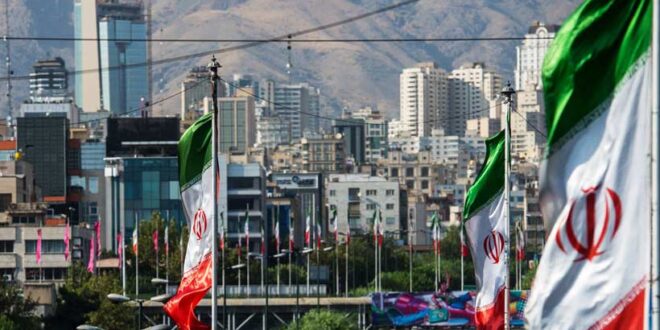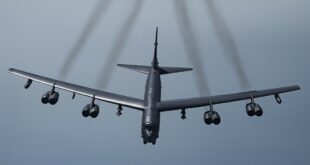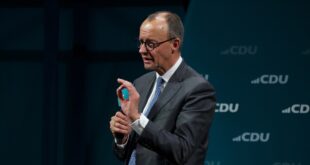Iran has been the epicenter of International focus for a multitude of reasons. Whether it is the bustling nuclear program or the permeating influence in the region or simply the hot pockets of rebels operating in the neighboring countries. Even its deteriorating economy has been a sensitive topic of debate in political circles around the world. While the talks are in motion to resolve the bilateral relations between Iran and the United States, the prospects of a lasting solution to the dialogue are beginning to fade.
The change in dynamic could be associated with a handful of reasons: Iran’s show of aggression to the International Atomic Energy Agency (IAEA) by barring their access to its nuclear sites, or by enriching Uranium to dangerous levels of purity. Yet, the current shift is due to the imminent end to the reign of the moderate President Hassan Rouhani. As he approaches an end to his consecutive 8-year term in the office, Rouhani can no longer run for another campaign in succession. The forthcoming elections, therefore, allude to a power shift towards the right-wing faction of Iran. The fears were exacerbated by the surprising disqualification of all the reformist or centrist candidates, leaving the conservatives in a weighted position to consolidate power in the tranches of the government: a plan that has long been into development.
The General elections are scheduled for 18th June 2021. The awaited elections are the first since 2013 when the conservatives are vying for a legitimate possibility of holding office. This is also the first instance when the fundamentalists enjoy an edge over their reformist counterparts. While President Rouhani earned the badge of striking the JCPOA agreement in 2015, the economic relief was short-lived as the former US President Donald Trump unprecedentedly pulled the US out of the Nuclear Deal whilst slamming crippling sanctions on Iran. Such a devastating dent in the popularity of Rouhani and his centrist votaries was showcased in the 2017 elections when a considerable portion of the Iranians voted for the right-wing leader, Ebrahim Raisi. While his voter tally of 38% was not enough to put him in office, his trajectory was decided as fissures only started to broaden in the presidency of Rouhani.
The US backtrack allowed a voice to the conservatives in the Irani Parliament as the shambled economy was further worsened by additional sanctions imposed by the United States. The voices only intensified as one after the other, some of the most key military and political figures like the commander of the Quds Force, Qasem Soleimani, or the prominent Nuclear scientist, Mohsen Fakhrizadeh, were assassinated. Coupled with frequent Israeli infiltration and manipulation of Iran’s nuclear program, the facets have all acted as catalysts to ignite more momentum in the right-wing which has resulted in political aggression. These are the underlying aspects that have resulted in the political engineering of the forthcoming elections to put the conservatives in absolute power to rebuff any prospects of reformation, to combat and avenge the actions of the past 8-years.
The Guardian Council – a 12-person bench responsible for vetting the presidential candidates – plucked out 7 core candidates for running in the elections. The Council comprises the judiciary and theological figures chosen by the Supreme Leader, Ayatollah Ali Khamenei. The seven candidates were picked from an estimated total of 592 original applicants. Such controversial selection was presumably based on the subjective evaluation of the candidates’ loyalty to the arching goals and welfare of the Islamic Republic of Iran. However, what stands out is a code of similarity, a common thread that connects all 7 selected nominees: all stem from the hardline faction in Iran. While the Guardian Council is not mandated by law to explain their selection, the reductionist procedure hardly seems a coincidence rather makes the elections more contentious.
Many of the reformists were disqualified when they held a strong prospect of holding the office. The most prominent disqualification came in the form of figures like Ali Larijani, the former speaker of the Parliament, and Eshaq Jahangiri, the current Vice-President of Iran. Both the centrist politicians enjoy considerable popularity or stem from a prominent political family yet were systematically winnowed from running the elections, arguably due to their strong ties with President Hassan Rouhani. Mr. Jahangiri asserted his disappointment in the selection process: “The disqualification of many qualified people is a serious threat to public participation and fair competition among political tendencies, especially reformists”.
The reduction of the candidates to mere seven, hardliner politicians paves the way to the presidency for the most notorious rightist in the running: Ebrahim Raisi. Serving as the current Judiciary Chief, Raisi has enjoyed deep-rooted ties with Iran’s Supreme Leader, Ayatollah Ali Khamenei. Khamenei vocalized his support of the final decision, stating: “The Council members have conducted their duty”. While Khamenei’s devotees already control swathes of the Irani Parliament and Judiciary, a shift of Presidency to Raisi would consolidate a conservative stronghold in Iran: an ominous sign for any prospects of dialogue, primarily a peril for the resumption of the Nuclear Deal.
The elections pose a gloomy prospect for the wellbeing of Iranians as well. With hardline decision-making having little to no centrist or reformist opposition, the image of an aggressive Iran is all but bolstered. The resultant would be a monotonic Iran facing backlash and international scrutiny in the name of more sanctions: a possibility that would crumble the already debilitated citizens of Iran.
This would be the first time that the Reformist Party has no candidate in the running and the outlook automatically grants an uncontested win to Raisi. Even Raisi was befuddled by the final decision of the Guardian Council, claiming he would ‘Try to persuade the Council to make elections more participatory’. The concerns are further materialized since a recent poll in Iran depicted a low turnout sentiment already looming in Iran: only 37% of the voters remotely showing any interest in casting ballots. With a boycott quickly developing in the political brackets of Iran, the Vienna Talks hinge majorly on how the power settles in Iran. However, with no reformist running for Presidency and Raisi bearing the crown of being a hardline Islamic Conservative, the prospects of a successful dialogue would diminish in the following months. What could follow is a tenure of more aggression, more pervasive influence of Iran in the regional disequilibrium, and more sensitivity in the political dynamics of the Middle East.
 Geostrategic Media Political Commentary, Analysis, Security, Defense
Geostrategic Media Political Commentary, Analysis, Security, Defense





